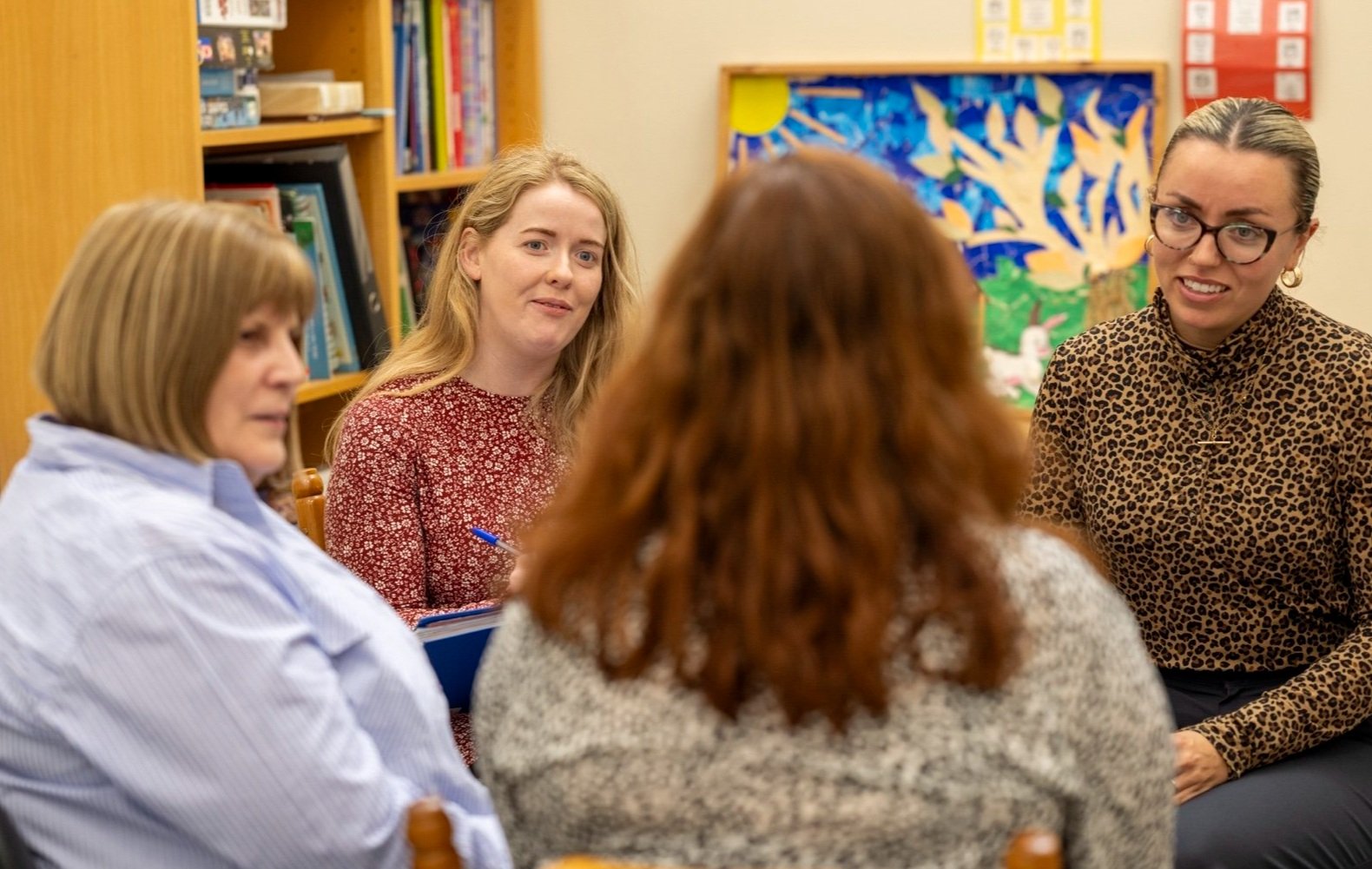

Clinical Supports & Services
The Clinical Supports & Service Directorate supports the leadership of the specialist Multi-Disciplinary teams who are skilled to meet the diverse needs of the people supported by Ability West across their lifespan. The Directorate also has delegated responsibility for developing person centred models of support, developing value-led supports, and planning service development in line with the needs of the people supported.
The Clinical Supports and Services Directorate at Ability West plays a crucial role in recognizing and responding to the changing needs of the individuals we support. The team continuously evolves and shapes services to meet the unique and evolving requirements of each person. With a focus on collaboration and innovation across disciplines it is ensured that the support and services provided are adaptive, responsive, and reflective of the diverse and dynamic needs of the people we support.
The team is dedicated to developing services that empower individuals, enhance their quality of life, and enable them to actively participate in decisions regarding their care and support. The MDT team strive to create an environment where an individual’s voice is not only heard but honoured, and their goals and aspirations are actively pursued.
Bryan Gallagher
Director of Clinical Supports and Services
Michelle Pienaar Vallot and Laura O’Brien with Jason Moriera

Speech and Language Therapy Team
The Speech and Language Therapy Team are one part of clinical supports and services in Ability West and they work closely with their colleagues in the other clinical teams -Physiotherapy, Positive Behaviour Support Team, Psychology, Social Work, Occupational Therapy and the Designated Officer.
They embrace the Irish Associations of SLT’s (IASLT) vision that “Everyone has the right to live well, irrespective of communication or eating, drinking and swallowing difficulties.”
The SLT team work collaboratively work with the people who use Ability West services, and deliver staff training on communication and feeding, eating, drinking and swallowing, development of easy read documents. The SLTs also do special awareness raising events in communication and feeding, eating, drinking and swallowing. The team work closely with the person’s family, staff team, the multi-disciplinary team and their wider community.
The trained Communication Champions across the organisation work with the SLTs to promote total and inclusive communication approaches, and is an essential role in Ability West services!
Please check the Speech and Language Therapy Team Page for more information on what they do!
Chloe Ni Chonghaile
Speech and Language Therapist demonstrating a Talking Mat session
This is TD Snap
It’s an Augmentative and Alternative Communication software downloaded to iPad.
Psychology Department
The Psychology Department have a multifaceted role in Ability West. The team have a responsibility for the assessment of people with an intellectual disability, as well as those that have co-morbid mental health issues, such as autism, ADHD and dementia. The team also has a key role in developing intervention and support plans for people with issues ranging from behavioural issues to self-harm and dementia, through to training and support for staff and families.
As a department the psychology team delivers training on a wide variety of topics ranging from autism, mental health presentations, the menopause through to topics such as personal development, relationships and sexuality, as well as topics such as trauma.
Psychology is a key discipline in the lives of many of the people that we support, particularly at times of transition or change and the team are focussed on empowering the people they work with in a respectful and person-centred manner, with a specific emphasis on the will and preference of the person.
Rafaela Simples
Psychology Support, engaging with a Service User.

Physiotherapy Department
The Physiotherapy team provide assessments, recommendations, and therapy to a wide range of people and age groups, in a variety of settings. People referred may have developmental and gross motor delays such as co-ordination and balance difficulties, declining mobility, falls prevention and bone health, orthotics, manual handling issues, seating and posture management. Some people may have difficulties with walking or require treatment after a hospital stay, surgery or following an accident.
People are mostly referred for physiotherapy when they present with a health-related condition that limits their ability to move and perform functional tasks as well as they should be able to in their daily lives. Physiotherapists take a holistic approach to treatment that involves the person directly in their own place. Each person is individually assessed, and person-centred, evidence-based recommendations are made accordingly.
Alice Wainwright
Physiotherapist Alice Wainwright conducting a Physio session with a service user.

Social Work Team
The Social Work team in Ability West supports Ability West’s mission to empower people with disabilities to live self-directed lives in an equal and inclusive society. The Social Work team offers advice and guidance, emotional support and they work from a human rights perspective.
Individuals are supported to identify their strengths and needs, to enable them recognize what they require to live self-directed lives, and advocate for them to make their own decisions in life.
It is the team’s ethos that every adult has a right to be safe from harmful situations. Where potential harm is identified the team work in partnership with the person, families, carers and staff to ensure there are safeguarding plans in place, to promote and protect a person’s wellbeing and right to feel safe.
The Social Work department also cover ‘Home-Sharing’. This involves a family placement to a person with an intellectual disability in their home in their community. This can involve respite, short breaks or full-time placements and has oversight of a home-sharing social worker.
Social Work Lead
Michelle Perrill and Designated Officer Katie Campbell at a Social Work Session supported by Joan Fitzpatrick
Occupational Therapy
Occupational Therapy involves maximising the independence of the people who are supported, problem solving and advocacy. In Ability West, Occupational Therapy involves working with people who we support to engage them in everyday activities that are important to them. Key areas of support include; postural management (seating/wheelchair assessments), employment, leisure, activities of daily living, environmental adaptations, discharge planning, mental health support and sensory differences. Our key skills include; grading, planning, problem solving, flexibility and creativity.
Our team directly impacts the mission for equality within an environment which promotes overall autonomy, health and wellbeing and enables people who we support to reach their full potential.
Shauna Thornton
Shauna Thornton of the Occupational Therapy Team during an OT Session

Positive Behaviour Support Team
The Positive Behaviour Support (PBS) Team is a key part of Ability West services. The team’s training in applied behaviour analysis enables them work with the person and those around them to develop an in-depth understanding of what they need and how best to support them.
The team work closely with staff teams to develop clear, ethical guidance for effective ways to help the person get their needs met and support their quality of life. As part of a team of trainers, the PBS Manager and behaviour therapists regularly deliver Studio 3 training that sets the standard for how to avoid and de-escalate stressful situations, as well as bespoke training as needed.
Overall, the PBS Team contributes to the mission of Ability West to provide person-centred, evidence-based and effective support for the people who receive our services.
Mick Hennessy assisted by Michelle Pienaar Vallot
in a Positive Behaviour Support session










